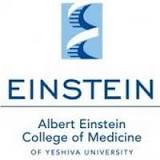Yoga-Based Rehabilitation Program in Reducing Physical and Emotional Side Effects in Patients With Cancer
| Status: | Completed |
|---|---|
| Conditions: | Anxiety, Anxiety, Breast Cancer, Lung Cancer, Colorectal Cancer, Cancer, Chronic Pain, Depression, Insomnia Sleep Studies, Other Indications, Dermatology, Hair Loss |
| Therapuetic Areas: | Dermatology / Plastic Surgery, Musculoskeletal, Oncology, Psychiatry / Psychology, Other |
| Healthy: | No |
| Age Range: | 18 - Any |
| Updated: | 1/25/2017 |
| Start Date: | February 8, 2001 |
| End Date: | July 20, 2016 |
Evaluation of a Yoga-Based Cancer Rehabilitation Program
This clinical trial studies yoga-based rehabilitation in reducing physical and emotional
side effects of living with cancer or its treatment. Yoga-based rehabilitation may reduce
side effects and improve the quality of life of patients with breast, lung, or colorectal
cancer.
side effects of living with cancer or its treatment. Yoga-based rehabilitation may reduce
side effects and improve the quality of life of patients with breast, lung, or colorectal
cancer.
PRIMARY OBJECTIVES:
I. To evaluate the effects of yoga on quality of life (QOL) of breast cancer patients on
different treatment regimens.
II. To pilot the effects of a yoga-based rehabilitation program versus standard care on QOL
impairment reported by newly diagnosed (a) lung and (b) colorectal patients.
III. To evaluate program compliance and satisfaction among breast, lung and colorectal
cancer patients as well as among the various sociocultural subgroups (e.g., ethnicity,
language).
OUTLINE: Participants are randomized to 1 of 2 arms.
GROUP I (YOGA-BASED REHABILITATION PROGRAM): Participants undergo a yoga-based
rehabilitation program up to 5 days a week for 1.5 hours and practice at home at least once
daily for 12 weeks.
GROUP II (STANDARD CARE/CONTROL): After a 3 month wait period, participants undergo
yoga-based rehabilitation program as in Group I.
I. To evaluate the effects of yoga on quality of life (QOL) of breast cancer patients on
different treatment regimens.
II. To pilot the effects of a yoga-based rehabilitation program versus standard care on QOL
impairment reported by newly diagnosed (a) lung and (b) colorectal patients.
III. To evaluate program compliance and satisfaction among breast, lung and colorectal
cancer patients as well as among the various sociocultural subgroups (e.g., ethnicity,
language).
OUTLINE: Participants are randomized to 1 of 2 arms.
GROUP I (YOGA-BASED REHABILITATION PROGRAM): Participants undergo a yoga-based
rehabilitation program up to 5 days a week for 1.5 hours and practice at home at least once
daily for 12 weeks.
GROUP II (STANDARD CARE/CONTROL): After a 3 month wait period, participants undergo
yoga-based rehabilitation program as in Group I.
Inclusion Criteria:
- Have been diagnosed with breast, lung or colorectal cancer in the previous 8 weeks
- Are to receive oncologic care at the Albert Einstein Cancer Center (AECC)
- Have a life-expectancy of at least 6 months
- Are either English- or Spanish-speaking
- Do not practice yoga regularly (> 1 month)
- Receive medical clearance by oncologic personnel on the study
Exclusion Criteria:
- Eastern Cooperative Oncology Group performance status >= 3
- Existence of any of the following:
- Seizure disorder
- Musculoskeletal conditions
- Heart problems
- Major psychiatric disorder
We found this trial at
1
site
Albert Einstein College of Medicine The Albert Einstein College of Medicine of Yeshiva University is...
Click here to add this to my saved trials
